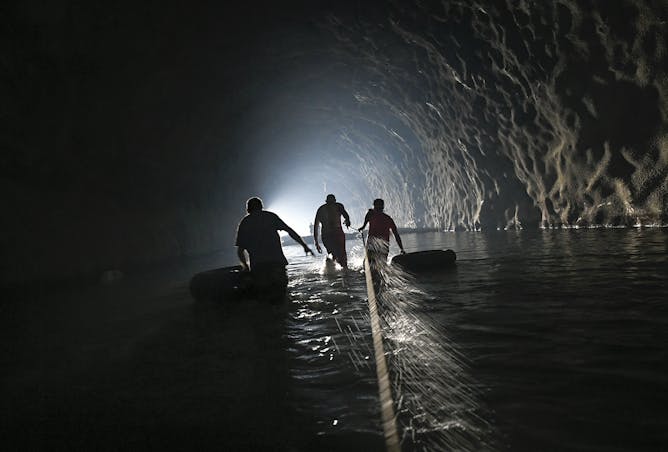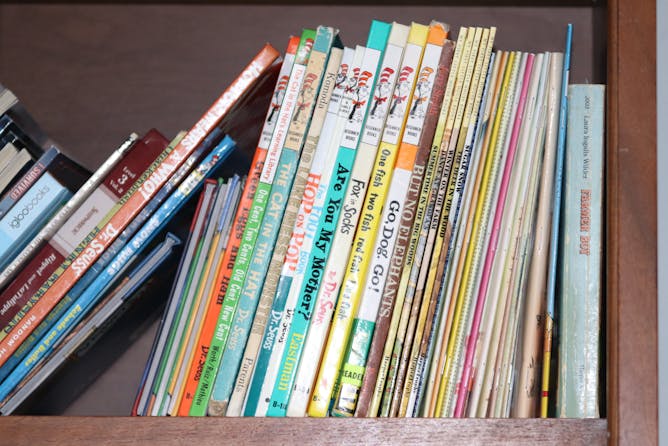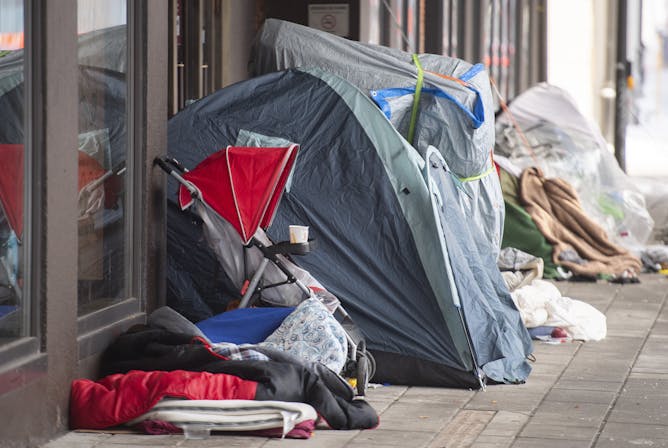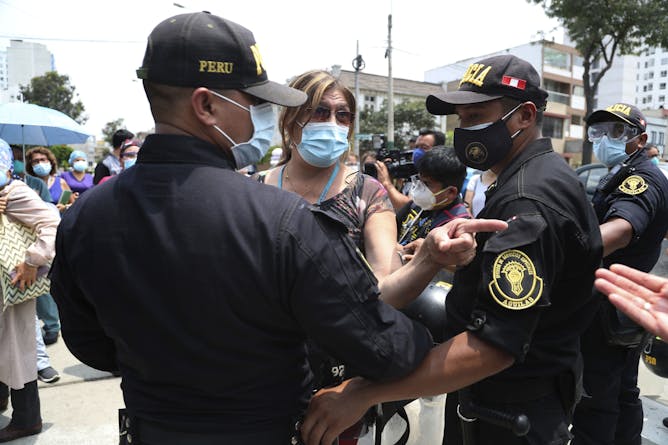|
Poor water supply and sanitation affect millions of people around the world — and here in Canada. Many public water operators are facing financial shortfalls in the wake of the ongoing coronavirus pandemic as costs have increased and revenues declined. One estimate puts the financial impact of COVID-19 at $27 billion for water utilities in the United States.
Private water companies often step up when municipalities struggle to replace aging infrastructure, face budget shortfalls or expanding regulations. And the pandemic could bring about increased privatization of the water sector. But privatizing vital services can have catastrophic effects.
Today in The Conversation Canada, David McDonald from Queen’s University and Susan Spronk from the University of Ottawa write about the impact the pandemic has had on public water operators around the world. Some municipalities and countries are using the pandemic to push ahead with privatizing their water and sanitation services.
Also today:
Regards,
|

Men wade through an abandoned highway tunnel to repair a self-created water system in the Esperanza neighbourhood of Caracas, Venezuela, in June 2020.
(AP Photo/Matias Delacroix)
David McDonald, Queen's University, Ontario; Susan Spronk, L’Université d’Ottawa/University of Ottawa
Water privatization is often seen as a solution to municipal budget shortfalls and aging water systems.
|

A NFT is a digital file with verified identity and ownership.
(Shutterstock)
Laleh Samarbakhsh, Ryerson University
It might sound ridiculous but the explosive market of crypto-collectibles and crypto-art is no joke. Here's an explainer to make sense of it all
|

In our current context of rapidly improving technology, archives and museums must constantly make tough decisions about what to keep, what to refuse or even remove.
(Shutterstock)
Monica Eileen Patterson, Carleton University
Media coverage of the recent Dr. Suess controversy are rooted in both a lack of awareness of the challenges and realities of maintaining collections and a false understanding of history.
|

The #ScienceUpFirst campaign targets online misinformation about COVID-19 that can endanger public health.
(Canva)
Jonathan N. Stea, University of Calgary
A national coalition of scientists, communicators and health experts is empowering Canadians to work together against online misinformation about COVID-19 and COVID-19 vaccines with #ScienceUpFirst.
|

A small homeless camp is shown outside a department store in Montréal, Que., on Jan. 23, 2021, as the COVID-19 pandemic continues.
THE CANADIAN PRESS/Graham Hughes
Timothy Martin, York University, Canada
It's possible to prevent homelessness, but it will take a commitment and dedication to understanding the conditions that produce it.
|

A woman who said she’s a medical worker who works directly with COVID-19 patients is stopped by police outside of the public Rebagliati Hospital in Lima, Peru, in February 2021. She complained that some people getting vaccinated don’t work directly with COVID-19 patients.
(AP Photo/Martin Mejia)
Jorge H. Sanchez-Perez, McMaster University; Denisse Rodriguez-Olivari, Humboldt University of Berlin; Leanne Woodward, University of Waterloo
A vaccination queue-jumping scandal in Peru has caused a massive uproar in the South American country. It could also be a wake-up call for all nations.
|

Les voitures du Réseau express métropolitain (REM) sont sorties pour la première fois sur les rails de la Rive-Sud, à proximité de la station Brossard, le 18 décembre 2020, au moment même où la Caisse de dépôt et placement du Québec (CDPQ) annonçait le projet du REM de l'Est.
CDPQ Infra (domaine public)
Florence Paulhiac Scherrer, Université du Québec à Montréal (UQAM)
Face à la crise écologique que nous affrontons, et dont les impacts sur la santé des populations seront majeurs, la science devrait guider la prise de décision publique dans le domaine des transports.
|
COVID-19
|
-
Emily Rosenman, Penn State; Rachel Bok, University of British Columbia
Two scholars of philanthropy and geography who reviewed the numbers see cause for concern about the agility and priorities of grantmakers during a crisis.
|
|
Politics
|
-
Douglas R. Hess, Grinnell College
A record number of people voted in the 2020 presidential election. Donald Trump lost, Joe Biden won. Now, GOP legislators across the country are trying to pass measures to limit voting.
|
|
Science + Technology
|
-
Marie Bannier-Hélaouët, Utrecht University
Next, researchers want to grow the tear glands of a crocodile – seriously.
|
|